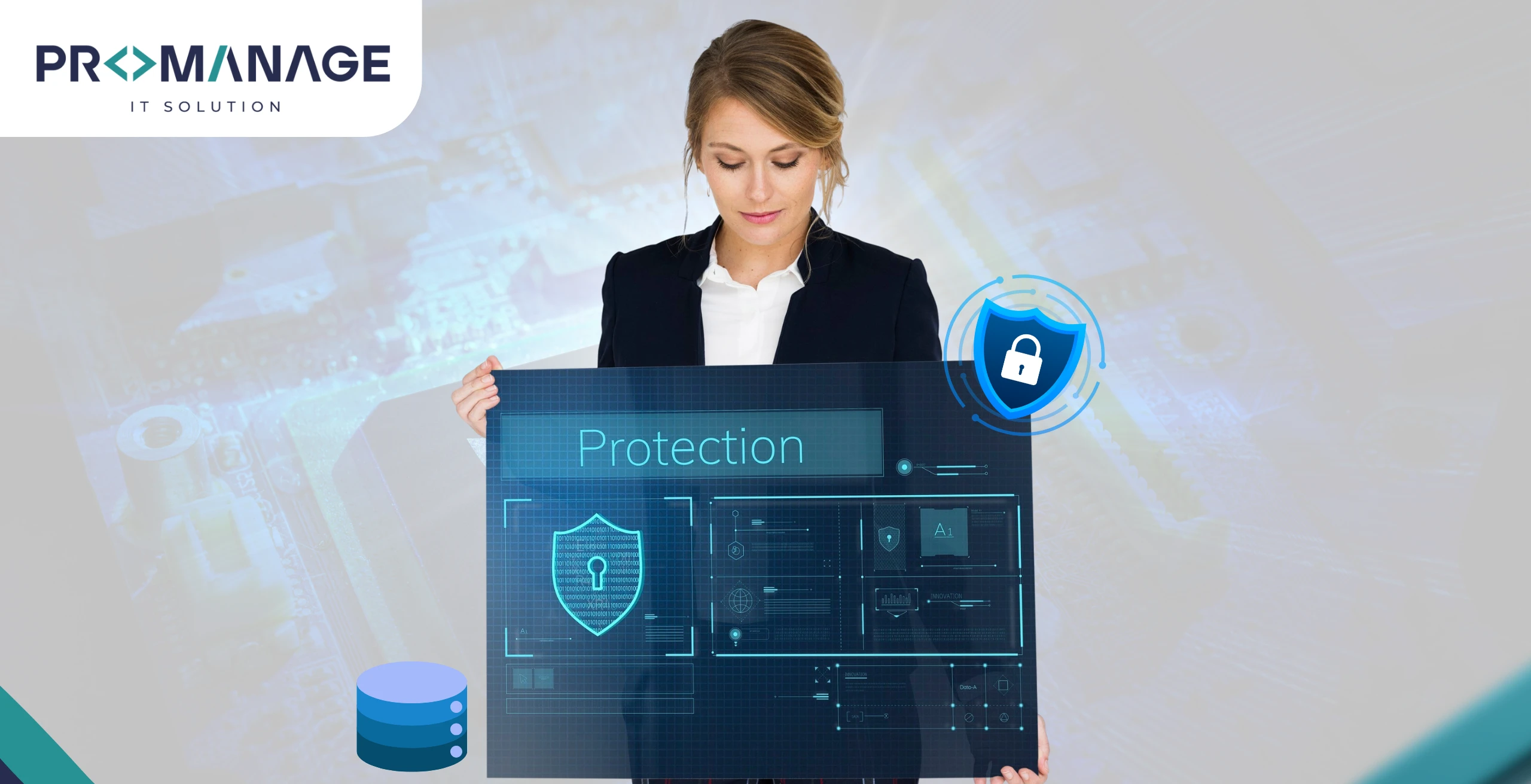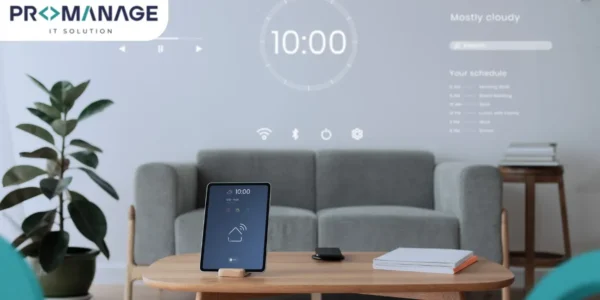Top 5 Cybersecurity Tips to Protect Your Data in 2025

Online threats change as technology does. Hackers have better tools, and more and more data breaches happen. This is the reason why data protection is now important for everyone, not just businesses. There is good news: if you follow a few smart hacking tips, your personal information will be much safer. In 2025, these are the five best ways to keep your info safe.
1. Use Management Tools to Make your Passwords Stronger
Hackers can easily find in accounts if passwords are weak or used repeatedly. Strong password is still the best way to protect yourself in 2025. Use the password management tool instead of trying to remember a bunch of complex passwords. These tools make passwords that are protected and different for each account. They then store those passwords safely. For this reason, you only need to remember one master password. The tool will take care of the rest.
Quick tips:
- Personal information like dates, pet names, and so on should not be used in passwords.
- Password managers should be able to use biometric entry, like fingerprint or face ID.
- For extra safety, change your master password every two months.
2. Turn on Two-Factor Authentication
If you use strong passwords, the account can still be broken. Using a two-working approval is an extra way to protect your information. You need to prove who you are through text messages, e -mail or login app after entering your password. Cheats can’t get in after this easy step, even if they figure out your password.
We hope that in the future, biometrics (such as fingerprints or face recognition) and other more advanced 2FA methods will be ideal for safe internet accounts and surfing.
Quick tip: Enter two-factor authentication (2FA) on your email, bank accounts, cloud storage and social media pages.
3. Use VPN Service for a Safer Connection
While public wi-fi is simple, it is one of the fastest ways to get your data to hackers. If you do something easy like logging on email or bank account in public wi-fi, your information may be stolen. This is where VPN services are used.
No one can see what you do online because a virtual private network (VPN) hides what you do and encrypt your link. Using VPN makes surfing safely and more private, whether you work from home, shop online or flows the content.
Quick tips:
- When you move or use public Wi-Fi, you should always use a VPN.
- For faster speeds, choose sites that are close to where you are.
- Turn on the “kill switch” to stop access to the internet if the VPN drops.
4. Always Update your Hardware and Software

Hackers love old software because it’s easy to join. Cyber criminals can use security holes in old versions of apps and operating systems at all times. These holes are fixed by regular changes, which also make data safer.
Make it a habit to set all of your devices to automatically update. It includes computers, phones and even smart home units. Since there are many connected things in 2025, one of the simplest and most effective ways to protect your computer is to keep them up to date.
Quick tips:
- Set up your operating system and apps to get changes automatically.
- It’s important but often forgotten to keep your router’s software up to date.
- Get rid of any apps or programs that you don’t use anymore. Old ones can pose a security risk.
5. Be Aware of Social Engineering and Phishing

Hackers may use technology to steal data, but they may also deceive you directly. In 2025, scam communications, phony websites, and phishing emails remain the most significant risks. Human error, not shoddy systems, is the basis for many attacks.
Before disclosing personal information, always verify websites, sender information, and connections. A basic cybersecurity tip is to avoid clicking on anything that seems fishy. If you voluntarily give up your information, not even the greatest VPN services or password management software can help you.
What to Look for in a Phishing Attempt:
- Check emails for small mistakes like misspelled words, strange phrasing, and links that seem sketchy.
- Instead of clicking on links in emails, type the site address in by hand.
- Check requests that involve money or private information, even if they seem important right away.
Quick Tip: Be careful with emails or notes that you don’t expect. If something sounds too good to be true or too important, it usually is.
The Future of Cybersecurity: A Look Ahead
Cyber security is not just an IT problem but a skill for life. In 2025 everything is online: Our phone, our house and even our cars. This means you need to protect your information on all your equipment, not just on the laptop.
As we move on, the AI-operated safety systems that learn from risk in real time will be used to protect the data. Personally taking care of yourself will always be very important, no matter how advanced the tools get.
Unique Point of View: Using tools too much can be harmful. “I’m safe because I have a VPN,” many people think. But habits are more important than tools when it comes to how well they work. As much as technology, cybersecurity is also about how people think.
FAQs
1. How can I stay safe online in 2025? What are the most important tips?
Some of the most important tips on cyber security using strong passwords and password management tools, turn on two-factor authentication, using VPN services for secure connections, keep all the software updated and look for fake fraud.
2. Do I need a password manager?
Yes. It is better to use password management tools than to use the same password for all your accounts. They make strong, a kind of password and store them safely, making it difficult for hackers to get it.
3. Should you still use a VPN service in 2025?
Absolutely. When using public Wi-Fi, VPN services are still required to protect your data while working from home or a network. Just make sure you choose a VPN service, which you can trust instead of a free that can sell your information.
4. How can i tell if the website I am visiting is safe?
Check the “HTTPS” and browser line for the paddling icon. Do not click on the links that appear sketches. When surfing safely, you should look after websites that ask for personal or financial information.
5. What currently poses the greatest threat to data protection?
The two biggest concerns are still social engineering and phishing. Hackers are able to fool people into divulging critical information even with sophisticated solutions like password managers and VPNs. Data safety requires being watchful and confirming sources.
6. Should I keep my devices up to date even if they’re fine?
Yes. A lot of the time, updates fix security holes that hackers can use. One of the easiest ways to protect your info is to keep your devices up to date.
Conclusion
Protecting your data in 2025 may seem hard, but that does not have to be. These hacking tips will help you protect from most dangers:
- Use password managers
- Turn on two-factor authentication (2FA)
- Use VPN services
- Keep the software up to date and look for fraud
Internet is always a risky place, you just have to be careful and use right tools to keep your browser and data safe.
Don’t forget cybersecurity is not just about keeping your information safe, it is about keeping your future safe.













SEO Team Lead
Preeti is a skilled SEO Team Lead passionate about boosting organic traffic and improving search rankings. She leads with data-driven strategies to help businesses grow online effectively.